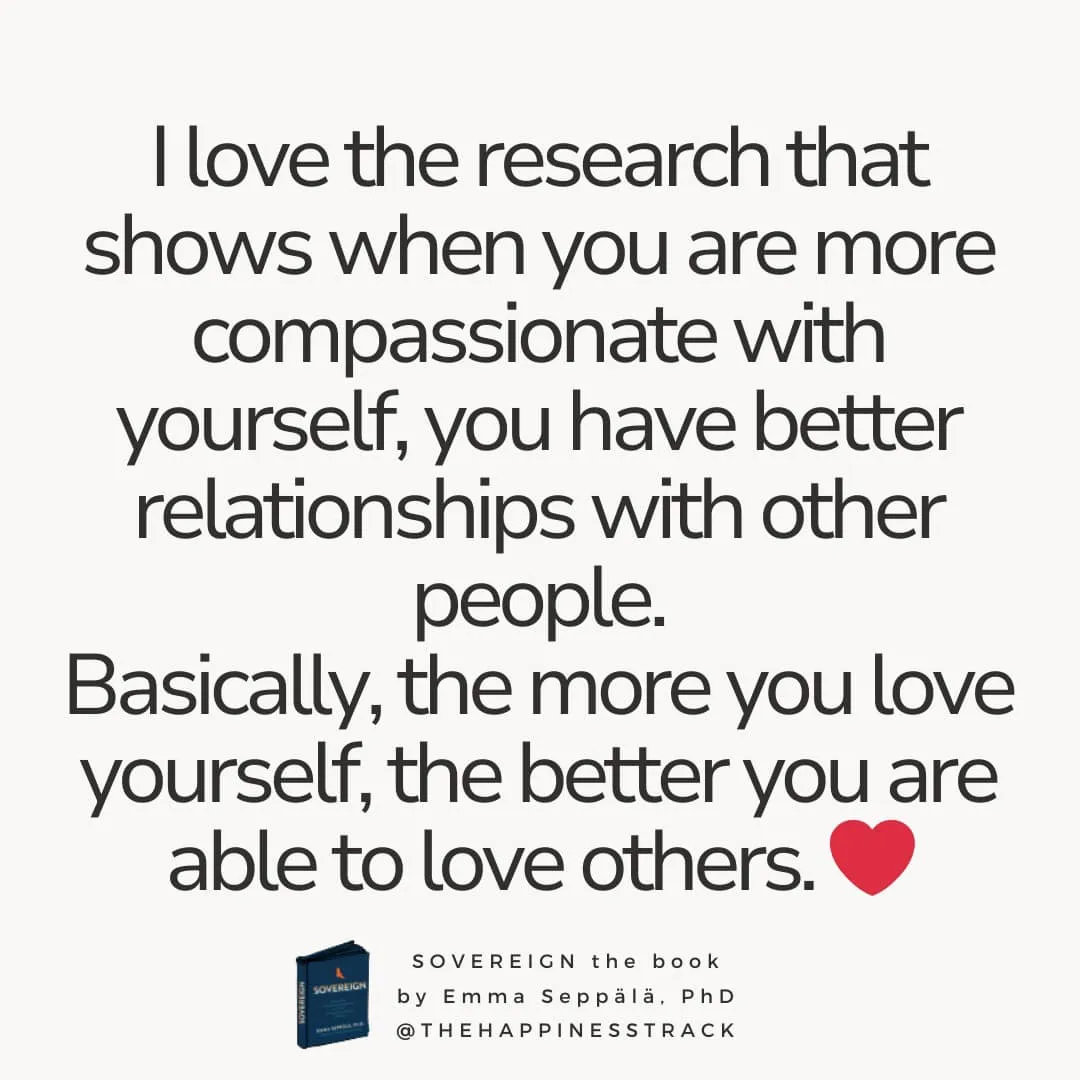Today's Thursday • 11 mins read
“Do you realize that the river that dies kills all its fish?”
Self-love is the water in that river.
This is another self-love prescription:
“Please put on your oxygen mask before helping others.”
Low oxygen can knock you unconscious within 3–5 seconds if your plane suddenly loses cabin pressure. That’s why you’re always asked to put on your mask first.
In life too, taking care of yourself first helps you to help others better. Science supports this.
So, love yourself first because the river that dies kills all of its fish.
5 Facts About Self-Love
Self-love is treating yourself with kindness, compassion, and respect. It means realizing your worth and understanding that you are deserving of happiness and fulfillment as much as anyone else.
Five facts about self-love:
- Self-care is key to mental well-being, and research links it to reduced depression and anxiety.
- Self-love is about recognizing and honoring our needs while still respecting the needs of others.
- It involves accepting our mistakes and flaws and embracing them as part of being human.
- Self-love is also a skill that we can learn through self-compassion and self-care practices.
- Cultivating self-love can help us show up authentically and set healthy boundaries.

Self-love is not being narcissistic and making personal gains using others. It also means no longer being a narcissist’s victim — since they infuse you with shame in loving yourself.
Self-Love: How To Love Yourself First Without Feeling Guilty
Here is how you can start loving yourself without feeling guilty:
1. Give yourself unconditional self-acceptance.
Unconditional self-acceptance is the first step.
But this is tricky because most of us grew up with this idea of conditional acceptance, often instilled by our well-meaning but critical parents. It starts as self-criticism for our faults, then takes deeper roots as self-rejection as we grow older.
However, a positive shift starts when we assure ourselves that we are worthy of our own love as anyone else, despite our flaws. We see that the obstacles to loving ourselves are just human imperfections.
We are humans, and all humans stumble, trip, and fall flat on their faces.
Unconditional self-acceptance is accepting yourself for who you are, with your faults and mistakes. It’s an agreement to fully embrace your entirety—the good, the bad, and the ugly.
- It does not mean taking pride in your mistakes, applauding your shortcomings, or condoning your wrongdoings.
- It also does not mean tolerating yourself grudgingly, judging yourself constantly, or criticizing your past.
Unconditional self-acceptance means you embrace yourself without qualifiers or judgments. That takes off the guilt related to self-love.
Practicing mindfulness can help build our attitude of self-acceptance.
“If you love yourself, you love everybody else as you do yourself. As long as you love another person less than you love yourself, you will not really succeed in loving yourself.”
— The Art of Loving, Eric Fromm
2. Stop trying to do things perfectly.
Perfectionism is the insidious enemy of self-love. Perfectionism is that pesky urge to be flawless, to show up as perfect in everything you do.
It’s like a buzzing bee, always nudging you to strive for that unattainable lofty goal, while at the same time whispering harsh criticisms and worrying about how others see you.
What fuels this elusive chase for perfection? Fear and insecurity.
Perfectionists are often trapped in a cycle of fear that they may not meet their own impossibly high standards or fail to live up to others’ expectations.
Tell yourself that you, like everyone else, are beautifully imperfect. You are learning and growing through our mistakes. This realization can get you off that exhausting, self-defeating cycle.
Perfectionists keep trying to avoid mistakes, rather than getting things done. It often gets them into a habit of procrastination.
There’s also a darker side to it. Perfectionism can lead to depression, anxiety, several phobias, obsessive-compulsive disorder, chronic fatigue syndrome, insomnia, and even self-harm.
Give yourself this reality check when you notice your perfectionist urge:
“Am I trying to catch a rainbow?”
Trying to be perfect is like setting out to catch a rainbow—beautiful from a distance, but impossible to get your hands on.
What to do:
- Feel proud of your hard work.
- Tell yourself, “Enough of this.”
- And move on to the next thing.
Learn to overcome your perfectionism.

3. Treat yourself with kindness and compassion.
Self-compassion means treating yourself with the same kindness, understanding, and support that you would offer to a close friend in times of struggle or difficulty.
It involves acknowledging your own suffering with empathy and warmth, rather than harsh self-criticism, and recognizing that imperfection is a natural part of the human experience.
In difficult times, change that self-chiding voice to one of self-compassion: “You are worthy of love and empathy, just as you are.”
Negative emotions like guilt and anger are normal when you fail, but don’t let them control your life.
Here’s a life hack: Be as good to yourself as you are to your best friend.
When you trip or tumble, treat yourself with the same kindness, empathy, and compassion that you’d show a friend who just had their world turned upside down.
And there’s a beautiful upshot to this:
Self-compassionate people are more optimistic, more satisfied, and more resilient to adversities. They also score high on emotional intelligence and wisdom.
Nurturing self-compassion also creates a ripple effect. As you become kinder to yourself, you’ll notice that you also grow more understanding and patient with others.
It’s like a shot that benefits you and many others around you.
Someone once said, “The kindest thing you can do for the world is to be kind to yourself first.”
4. Stop comparing yourself to others.
Today, everyone on social media seems to show off a life that they don’t actually have — smiling selves, happy friendships, successful jobs, exciting vacations, and shiny Instagram stories.
All that makes you compare your real life to their fake life. The truth is, people are different, and what you mostly see are their happiest selves.
And comparisons often breed resentment towards yourself and others and make you unhappy. They make you less happy and less loved by yourself.
Please stop comparing yourself with others — their lifestyles, their possessions, their friends and relationships, their social influence, their education and post, their qualities, and their luck.
“A better game plan: Run your own race at your own pace.”
Do not lose sleep over what others might say or think. They could be dealing with their comparison-driven social envy.
Live up to your own goals and rules. Stop being sensitive to other people’s criticisms.
Stepping away from comparing yourself to others can lead to a more contented version of yourself. Focus on yourself; you’ll start loving yourself more without any guilt.
As Ted Roosevelt said, “Comparison is the thief of joy.”
5. Start talking as if you’re in love with yourself.
First, don’t fall for this trap of telling yourself that if you don’t love yourself, who else will?
Because it is possible to love others while not loving yourself. Worse, you might start to think that since you don’t love yourself, no one else can love you.
Tell yourself things like this to fall more in love with yourself:
- “I choose to prioritize my happiness and well-being.”
- “I am deserving of love and acceptance, just as I am.”
- “I’m being human and humans make mistakes. It’s okay.”
- “I am worthy of success and fulfillment in all areas of my life.”
- “I trust myself to make choices that align with my values and goals.”
- “I care about myself. That isn’t being selfish because I care about others too.”
- “I already tried to give it a reasonable shape. I shouldn’t try to perfect it now.”
- “I embrace my strengths and imperfections, knowing they make me unique.”
- “It’s fair to love me, as it helps me empathize and bond with my partner better.”
- “I am enough, exactly as I am, and I deserve all the good things life has to offer.”
- “I can sit with my emotional self in love and concern, as I’d do with my best friend.”
You could set one of these messages as a reminder on your smartphone to buzz you at different times of the day.
Why Should You Love Yourself First?
Studies suggest self-love can help you improve your sleep, dietary habits, and coping with stress. Experts say the more you love yourself, the better your self-esteem, romantic capability, and survival chances. People who love themselves find it easy to start healthy habits, like exercising daily and building meaningful social connections.
Self-love also strengthens your resilience and makes it easier to bounce out of troubled times.
We should love ourselves as a priority because it improves our relationships with others. According to research, those who felt greater compassion for themselves reported higher satisfaction levels in their relationships.
- In their 2006 study, psychologists Murray, Holmes, and Collins found that those who do not respect themselves also react with anger and hostility towards their partners.
- Two other studies (here and here) found people who criticize themselves do not trust their partners as much. These people also had dissatisfaction in their relationships and had difficulty being intimate.
- In 2014, University of Texas psychologists Neff and Beretvas got 104 couples to agree to take an online survey. For this, it promised them two free movie tickets each.
In the Neff & Beretvas survey, they went through a test on a lot of things, like their self-compassion, self-esteem, control, autonomy, verbal aggression, and relationship satisfaction.
Overall, it was a batch of around 170 questions. I know what’s going on in your head – that is a hefty price to pay for two movie tickets.
The results Neff and Beretvas pulled out after analyzing the data from these couples’ responses were:
- Those who felt more compassion towards themselves had better satisfaction in their relationships.
- These people did not try to control their partners as much and gave them more space.
- They cared for and supported their partners more.
- They also showed less verbal hostility towards them.
- In a sentence, they had more positivity in their relationships.
So, if you want more romance and security in your relationships, make sure you are more kind to yourself too.
Why Can’t You Love Yourself?
Self-love often seems difficult because of a deep-seated feeling of shame originating from the fear that loving oneself might allow others to judge them as selfish or narcissistic.
Here’s how it might have evolved:
You probably stopped loving yourself when somebody told you self-love was selfish. You argued against it. But even then, it found its way deep into your unconscious. From that point, you started your walk through life believing it was wrong to love yourself.
- First, you felt a little guilty about loving yourself.
- Your guilt grew into a toxic shame.
- You stopped seeing yourself as your friend.
- You could not forgive your mistakes.
- You started to blame and criticize yourself.
- You even lost most of your empathy for yourself.
- Started judging yourself harshly and obsessing over your wrongs.
- Then came the self-flagellation and self-punishments.
Somewhere along, you even crossed the line. You kept yourself up without sleep for 48 hours straight. You made yourself go with no food for two days. Everything that was any fun in your life, you pulled yourself away from them all.
Remember, it started from guilt — a self-conscious emotion involving negative self-evaluation and feelings of distress and failure.
It might not be you. It might be someone else that you know who’s going through this. And you don’t know how to help. It’s a tragedy of our times that so many of us do not know how to help those who fall out of love with their own selves.
That is perhaps an irony too. We can help patch up two different people, but we cannot show them how to patch up with themselves. Again, it is because of the same guilt we carry in our minds — the catastrophic myth that self-love is selfish love.
Further Reading:
- Does self-love lead to love for others?
- Philosophical Reflections on Self-Worth and Self-Love
- What is self-love? Redefinition of a controversial construct.
- Shamed into Self-Love: Dynamics, Roots, and Functions of Narcissism
- The Gifts of Imperfection — In this book, Brené Brown argues eloquently how loving ourselves is as important as all other ingredients of an emotionally healthy life.
Final Words
Take care of yourself first because your humanitarian and altruistic work depends on it.
Listen to your emotions — they contain key messages. If you’re too busy moving forward while pushing yourself aside, you may miss those cues.
Sit with yourself, and pay attention to the messages your emotions are trying to deliver. Your self-love starts from there.
Finally, save this message: Don’t keep yourself from falling for your greatest love.
√ Also Read:
- Decoding Love: Signs That A Fearful Avoidant Loves You
- The Mystery of Rejection Sensitivity Disorder In Adults
- 20 Bold Signs A Narcissist Is Done With You (Discard Stage)
- 10 Lessons About Life Learned Too Late. What Did You Miss?
- What Makes Life Meaningful: Discover The Key Ingredients
√ Please spread the word if you found this helpful.
• Our Story!
